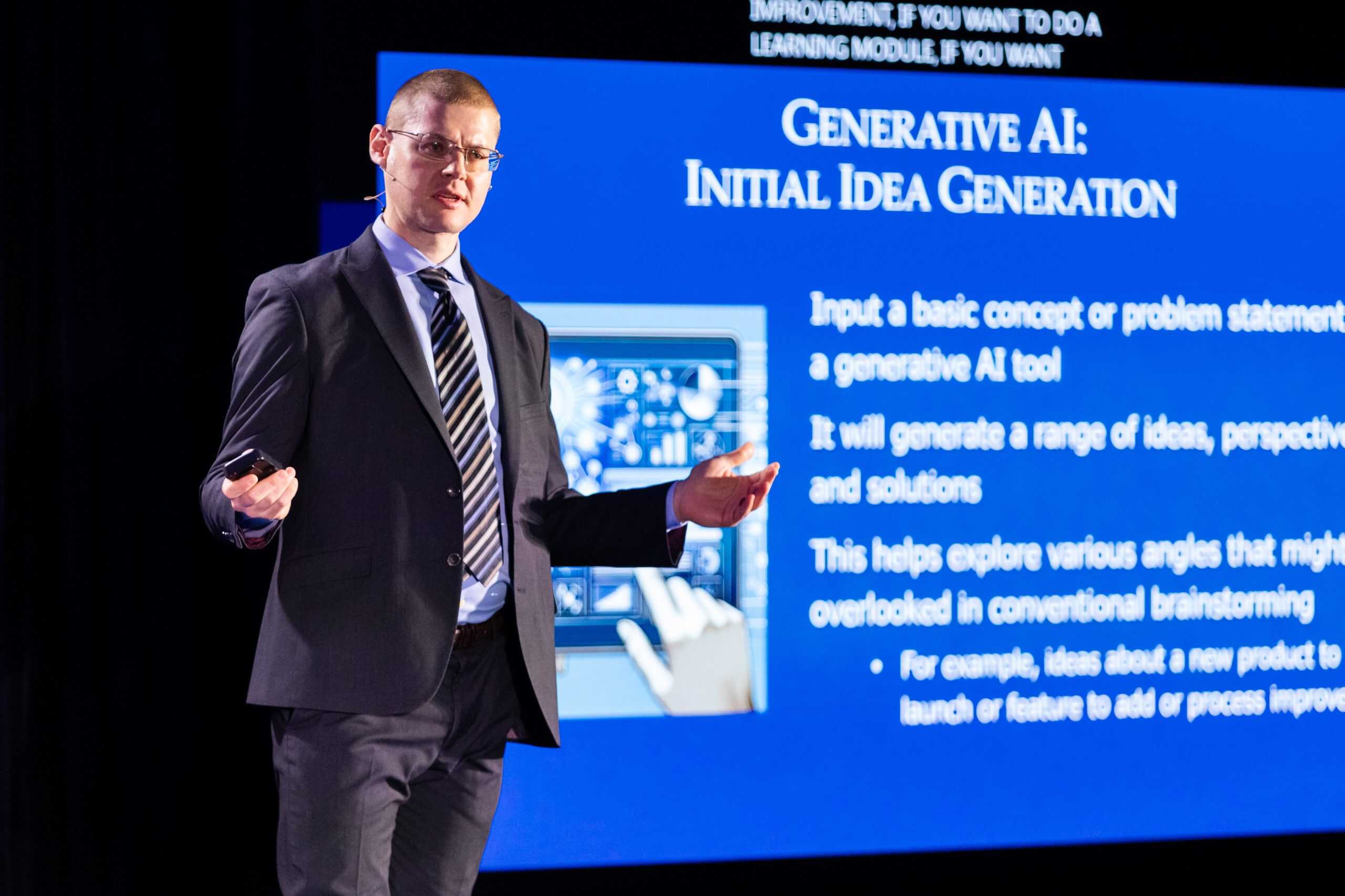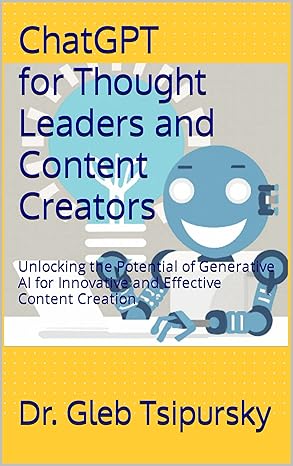Consulting
Do you want to overcome frustrations with Gen AI adoption?
Our customized solutions will help you gain a competitive advantage in the future of work.
Contact us today for a free consultation.

"Gleb Tsipursky came to my attention sometime during the pandemic when I was planning to have our research institute follow the standard path that all the big corporations were following. Apple and Google were announcing plans to have people come back three days a week, I thought that seemed like a good plan. ... I saw a video that Gleb gave at IEEE [the Institute of Electrical and Electronics Engineers] that really actually changed my mind about this. It was a video about hybrid work and how important it was to actually embrace it. One of the things I was impressed by was all these interesting ideas about how to make hybrid work more effective. So I signed up for a meeting with Gleb and I learned quite a bit more about how to do hybrid work well. Gleb has come on as a consultant for the Information Sciences Institute and has been really helpful in terms of putting us much more in a leadership position in terms of figuring out how to do hybrid work. We changed our policies, we are much more flexible about who can work at home and allowing people to work from home whenever it makes sense with respect to their supervisor. We are adapting people's home offices and our office spaces and figuring out how to onboard people in a way that is more effective when people haven't met in person. I think he's been incredibly helpful in terms of really transitioning us to lead in how we manage hybrid work at the institute."
Dr. Craig Knoblock, Keston Executive Director of the Information Sciences Institute at University of Southern California
“Dr. Gleb had a big positive impact at Applied Materials. Our leaders and engineers love data-based, research-based insights, which is exactly what he brings. He hit it out of the park, and he used a team led process, which was incredibly engaging. He introduced us to a concept he created called asynchronous brainstorming. It was a process we used with hundreds and hundreds of leaders globally at the same time. We did this during our CEO kickoff session for our strategy work. In a very short amount of time, we were able to get great benefits. I also love the work he's doing to educate leaders around the power and positive benefits of hybrid and virtual working. And one of his techniques that I'm planning to use is what he calls “virtual coworking”, where you and as many coworkers as you'd like create a virtual meeting, no purpose or agenda, but rather just to be working with one another. I highly endorse Dr. Gleb's work with leadership teams.”
Susan J. Schmitt Winchester, Chief Human Resources Officer at Applied Materials
Media Features on Gen AI

Our book, ChatGPT for Leaders and Content Creators: Unlocking the Potential of Generative AI, offers case studies and best practices that will help you integrate best practices for integrating Gen AI into your work. It’s based on work done by our CEO who authored the book in consulting for over two dozen companies on how to integrate Gen AI into their systems and processes, and overcoming the human challenges involved in using Gen AI effectively. It also draws upon extensive peer-reviewed and survey research on Gen AI, and case studies from prominent companies.
Case Study
Overcoming Psychological Barriers to Generative AI Adoption in a Financial Services Firm
Situation
A mid-size professional services firm faced significant challenges in implementing generative AI technologies. Despite recognizing the potential for AI to revolutionize their operations, the firm encountered considerable resistance from employees at all levels. This resistance stemmed from psychological barriers, including fears, biases, and uncertainties surrounding the new technology.
Intervention
Prior to DAE's intervention, the firm had initiated an AI implementation project with a top-down approach, mandating the use of generative AI tools without adequately addressing the underlying human factors. This approach resulted in pushback, reduced morale, and limited adoption. DAE conducted a comprehensive assessment, identifying key cognitive biases such as the status quo bias, empathy gap, and functional fixedness as primary contributors to the resistance.
DAE proposed a multi-faceted strategy based on principles from behavioral science to facilitate a smoother transition. This strategy included:
- Education and Awareness: DAE organized workshops to educate employees about the benefits and functionalities of generative AI, addressing misconceptions and fears. These sessions included real-world examples and success stories to illustrate the positive impact of AI.
- Inclusive Decision-Making: Involving employees in the AI adoption process, DAE facilitated focus groups and feedback sessions to gather input and address concerns. This inclusive approach helped to build trust and ownership among the staff.
- Pilot Programs: DAE implemented small-scale pilot programs allowing teams to experiment with AI tools in a controlled environment. These pilots provided hands-on experience, reducing uncertainty and demonstrating the practical benefits of AI.
- Change Champions: Identifying and training change champions within the organization, DAE empowered these individuals to advocate for AI adoption and support their peers through the transition.
- Ongoing Support: DAE provided continuous support through regular check-ins, troubleshooting sessions, and resources to help employees integrate AI into their daily workflows effectively.
Impact
The strategic intervention by DAE resulted in significant positive outcomes for the financial services firm:
- 45% increase in AI tool adoption rates within the first six months of the intervention.
- 40% reduction in resistance-related incidents, as measured by internal surveys and feedback mechanisms.
- 22% improvement in employee engagement scores, reflecting greater openness and willingness to embrace new technologies.
- 17% increase in the generation of innovative ideas, facilitated by the use of generative AI tools in brainstorming and problem-solving sessions.
- 20% boost in overall productivity, attributed to the efficiency gains from AI-enhanced processes and workflows.












